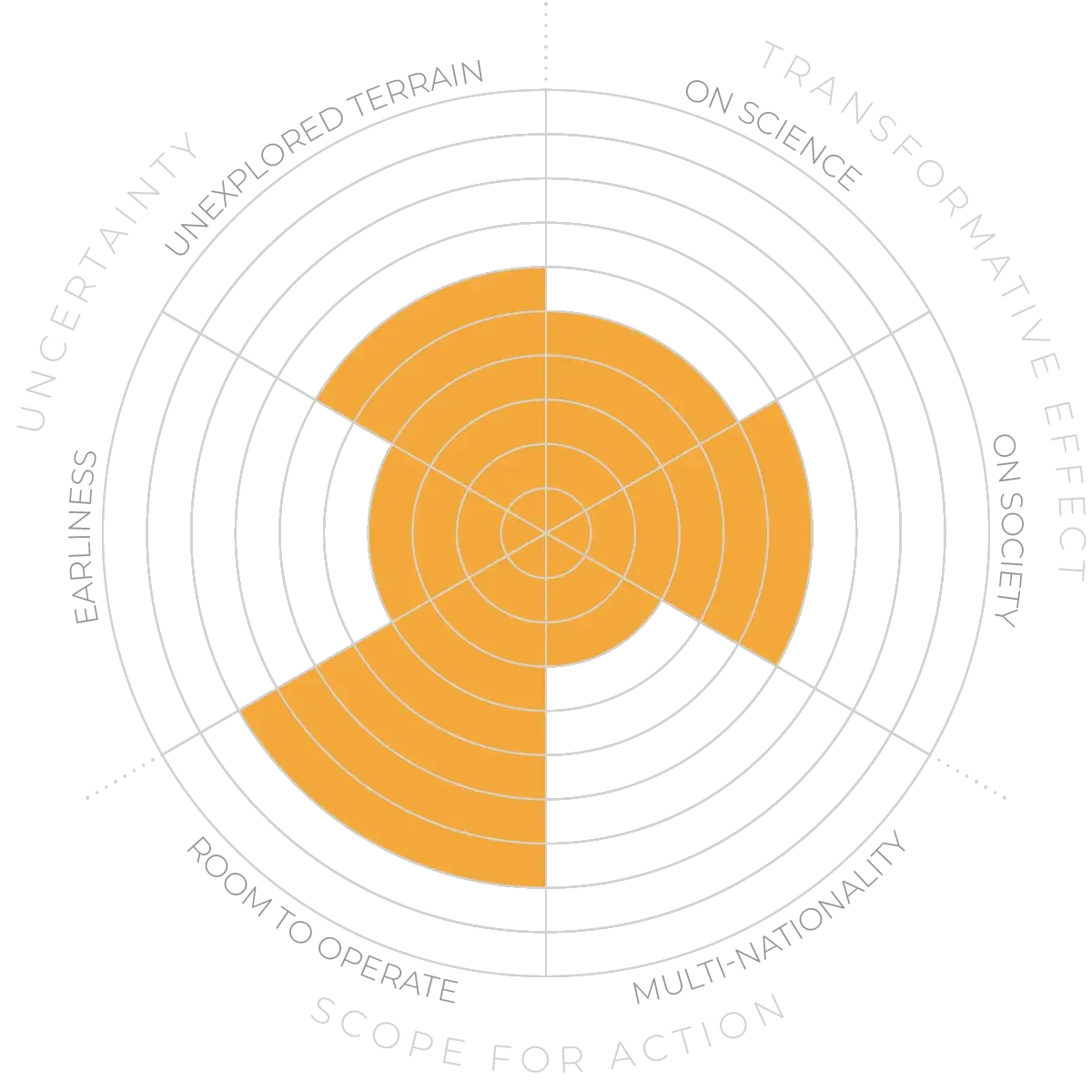Future Horizons:
10-yearhorizon
Lunar exploration and regional concerns bring challenges
25-yearhorizon
Trained experts in science diplomacy begin to steer policy
At the same time, however, the reality of global politics and geo-economics means that there are increasingly areas of tension that involve science and technology.1 In the openness vs security dilemma, the rise in tensions between certain countries is leading to move the balance towards greater security, with traditionally open and liberal countries shifting their stance. Canada, for instance, has been applying a new “Policy on Sensitive Technology Research and Affiliations of Concern” since the beginning of 2024.2
Negotiations over the location of key science projects such as the Future Circular Collider are all potential sources of conflict and competition: science diplomacy is being used to leverage national and regional power, calling into question the mainstream vision of science diplomacy as inherently at the service of peace.
Science diplomacy for effective multilateralism - Anticipation Scores
The Anticipation Potential of a research field is determined by the capacity for impactful action in the present, considering possible future transformative breakthroughs in a field over a 25-year outlook. A field with a high Anticipation Potential, therefore, combines the potential range of future transformative possibilities engendered by a research area with a wide field of opportunities for action in the present. We asked researchers in the field to anticipate:
- The uncertainty related to future science breakthroughs in the field
- The transformative effect anticipated breakthroughs may have on research and society
- The scope for action in the present in relation to anticipated breakthroughs.
This chart represents a summary of their responses to each of these elements, which when combined, provide the Anticipation Potential for the topic. See methodology for more information.



